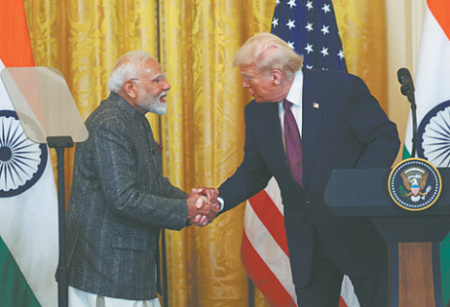
The once-celebrated friendship between Donald Trump and Indian Prime Minister Narendra Modi, marked by stadium rallies and public embraces, has soured dramatically. The former U.S. President is now threatening India with steep tariffs and other penalties, accusing the nation of profiting from the resale of Russian oil amid the ongoing conflict in Ukraine, placing a decades-long strategic partnership under severe strain.
New Delhi has forcefully pushed back, accusing Washington of hypocrisy and applying a double standard. The Indian government argues that its increased oil imports from Russia were a necessary step to stabilize global energy markets after traditional supplies were diverted to Europe—a move it claims the U.S. initially supported. Indian officials emphasize that their primary duty is to secure affordable energy for their citizens and point out that many Western nations criticizing India continue their own substantial trade with Russia.
To substantiate its claims, India’s Ministry of External Affairs highlighted that the European Union’s trade with Russia in 2024 reached €67.5 billion, far exceeding India’s total trade volume. This commerce extends beyond energy to include fertilizers, minerals, and machinery. Furthermore, New Delhi noted that the United States itself continues to import critical materials from Russia, such as enriched uranium for its nuclear industry and palladium for manufacturing.
This escalating trade dispute is testing the foundations of the U.S.-India relationship, which has been carefully cultivated over 25 years into a strategic partnership. According to Ashok Malik, a former adviser to India’s foreign ministry, these efforts are being jeopardized not just by tariff threats but by “irresponsible speeches and social media posts.” The rift raises questions about the future of key security collaborations, including the Quadrilateral Security Dialogue (QUAD), an alliance with the U.S., Japan, and Australia that India views as a crucial counterweight to China.
For now, the path to reconciliation appears narrow. Some Indian experts, like former Finance Minister Subhash Garg, have suggested that India should accept the proposed 25% tariffs, forcing American importers and consumers to bear the cost, while seeking alternative markets for its goods. While the economic confrontation intensifies, many in New Delhi hope to insulate critical security cooperation with Washington from the trade fallout, underscoring the complex balancing act the country now faces.
